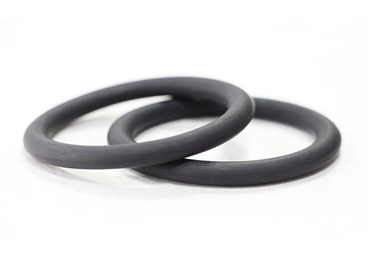05
2024
-
08
Enhancing Engine Performance: The Crucial Role of NBR Oil Seals in Automotive Systems
Enhancing Engine Performance: The Crucial Role of NBR Oil Seals in Automotive Systems
Table of Contents
1. Understanding NBR Oil Seals
2. The Importance of Engine Seals in Automotive Performance
3. How NBR Oil Seals Work
4. Key Benefits of Using NBR Oil Seals
4.1. Leak Prevention
4.2. Friction Reduction
4.3. Temperature Resistance
4.4. Enhanced Engine Longevity
5. Installation and Maintenance of NBR Oil Seals
5.1. Installation Guidelines
5.2. Maintenance Tips
6. NBR Oil Seals vs. Other Seal Materials
7. Common FAQs Related to NBR Oil Seals
8. Conclusion: The Impact of NBR Oil Seals on Engine Performance
1. Understanding NBR Oil Seals
Nitrile Butadiene Rubber (NBR) oil seals are essential components in automotive engines, designed specifically to prevent fluid leaks while allowing for the smooth operation of engine components. Composed of a blend of nitrile and butadiene rubber, NBR oil seals are known for their resilience and versatility. Their unique properties make them ideal for high-pressure and high-temperature environments, such as those found in automotive engines.

2. The Importance of Engine Seals in Automotive Performance
Engine seals play a pivotal role in maintaining the efficiency and performance of automotive systems. A properly functioning seal ensures that engine oil, coolant, and other vital fluids remain contained within the engine, preventing leaks that could lead to catastrophic failures. By maintaining fluid integrity, NBR oil seals contribute significantly to engine performance, fuel efficiency, and overall vehicle reliability.
3. How NBR Oil Seals Work
NBR oil seals operate by creating a barrier between different engine components, such as the crankshaft and engine block. They are designed to fit snugly around moving parts, preventing oil from escaping and contaminants from entering. The flexibility and elasticity of NBR allow the seals to conform to the surface of the components, creating a tight seal that minimizes leakage and wear.
4. Key Benefits of Using NBR Oil Seals
4.1. Leak Prevention
Leakage in an engine can lead to a host of problems, including reduced performance and potential engine damage. NBR oil seals are specifically engineered to prevent fluid leaks, ensuring that oil and coolant remain where they belong—within the engine.
4.2. Friction Reduction
Friction between moving engine components can lead to accelerated wear and tear. NBR oil seals help to minimize friction by providing a smooth, flexible barrier that allows for the free movement of parts while keeping lubricants contained.
4.3. Temperature Resistance
Automotive engines operate at high temperatures, and the materials used in engine components must withstand these extremes. NBR is known for its excellent temperature resistance, maintaining its integrity even under challenging conditions. This ensures that oil seals retain their effectiveness throughout the life of the engine.
4.4. Enhanced Engine Longevity
By preventing leaks, reducing friction, and withstanding high temperatures, NBR oil seals contribute to the overall longevity of an engine. A well-maintained engine with effective seals is less likely to experience mechanical failures, ultimately saving owners time and money on repairs.
5. Installation and Maintenance of NBR Oil Seals
5.1. Installation Guidelines
Proper installation of NBR oil seals is crucial for their effectiveness. It is important to ensure that the sealing surfaces are clean and free from debris. The seal should be installed straight, without tilting, to avoid damage. Utilizing appropriate tools can also aid in achieving a successful installation.
5.2. Maintenance Tips
Regular inspection of oil seals is vital for early detection of wear or damage. Signs of oil leakage or visible wear on the seal indicate that it may need replacement. Maintaining optimal engine temperatures and using high-quality lubricants can extend the life of NBR oil seals, enhancing overall engine performance.
6. NBR Oil Seals vs. Other Seal Materials
While NBR oil seals offer numerous advantages, it is essential to compare them to other seal materials such as fluorocarbon (FKM) and ethylene propylene diene monomer (EPDM) seals. NBR seals excel in environments where oil and fuel exposure is prevalent, while FKM seals may provide better resistance to certain chemicals. EPDM seals, on the other hand, are optimal for applications involving steam and high-temperature water. Each material has its unique strengths, making NBR a suitable choice for automotive applications due to its balance of performance and cost-effectiveness.
7. Common FAQs Related to NBR Oil Seals
7.1. What is the lifespan of NBR oil seals?
The lifespan of NBR oil seals can vary based on factors such as operating conditions, temperature, and maintenance. Typically, they can last several years, but regular inspections are recommended for optimal performance.
7.2. Can NBR oil seals be reused?
Reusing NBR oil seals is generally not recommended. Once removed, seals can lose their elasticity and may not provide a proper seal if reinstalled.
7.3. How do I know if my NBR oil seal needs replacement?
Signs of oil leakage around the seal, visible wear, or unusual engine noises can indicate that the NBR oil seal needs replacement.
7.4. Are NBR oil seals compatible with synthetic oils?
Yes, NBR oil seals are compatible with synthetic oils. However, it is essential to consult the manufacturer’s recommendations to ensure compatibility with specific formulations.
7.5. What is the cost of replacing NBR oil seals?
The cost of replacing NBR oil seals can vary based on the vehicle model, labor costs, and specific seals required. On average, it can range from $100 to $500.
8. Conclusion: The Impact of NBR Oil Seals on Engine Performance
In conclusion, NBR oil seals play a vital role in enhancing engine performance by providing reliable leak prevention, reducing friction, and maintaining optimal operating conditions. Their unique properties make them an essential component in the automotive industry, contributing to engine longevity and overall vehicle efficiency. By understanding the importance of NBR oil seals and ensuring proper installation and maintenance, vehicle owners can significantly improve the performance and reliability of their engines, ultimately leading to a smoother and more enjoyable driving experience.
More News


